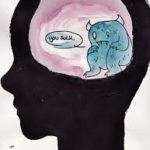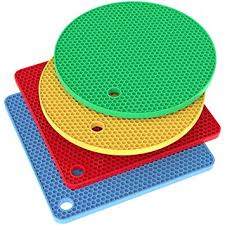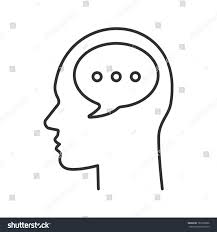I promised that I’d come back to the problem of the internal critic — and how it might be constructive or (more often) destructive when it comes to addiction. This was part of my plan to translate Jordan Peterson’s prognostications into practical advice for people in addiction. Now, two months later, I hesitate to refer back to JP because of the ongoing shitstorm that has clouded his online presence and scrambled many people’s attempts to interpret just about anything he’s ever said. It seems the controversy has caught up with and overwhelmed the content, which is a shame. But it doesn’t matter much for the purpose of this post. Thoughts about the internal dialogue and self-criticism didn’t start with JP.
 In modern times, the idea of an internal critic goes back to Freud, who envisioned a superego that oversees one’s thoughts and feelings, judges them, and dishes out guilt when it finds that they centre on wishes for sex and murder. Fast-forward to the middle of the century and you’ve got object relations theory, where the superego is just as harsh but a lot more observant. It’s not only sex and aggression that you’re guilty of; it’s also greed and envy. A couple of decades later came “transactional analysis,” a lay-person’s guide to an internal parent in ongoing dialogue with a child-self, with an adult self hopefully emerging in between. Since then? There’ve been all sorts of offshoots, but mainly a more optimistic approach, including the current emphasis on self-compassion, in psychotherapy programs like ACT, mindfulness/meditation, and positive psychology in general.
In modern times, the idea of an internal critic goes back to Freud, who envisioned a superego that oversees one’s thoughts and feelings, judges them, and dishes out guilt when it finds that they centre on wishes for sex and murder. Fast-forward to the middle of the century and you’ve got object relations theory, where the superego is just as harsh but a lot more observant. It’s not only sex and aggression that you’re guilty of; it’s also greed and envy. A couple of decades later came “transactional analysis,” a lay-person’s guide to an internal parent in ongoing dialogue with a child-self, with an adult self hopefully emerging in between. Since then? There’ve been all sorts of offshoots, but mainly a more optimistic approach, including the current emphasis on self-compassion, in psychotherapy programs like ACT, mindfulness/meditation, and positive psychology in general.
 Addicts don’t need a history lesson when it comes to the internal critic. Just being an addict is enough to earn you a degree in self-judgment, self-contempt, self-hatred, and all their variants. Self-criticism is often (and rightfully) felt to be highly destructive. It arises from the addictive pursuit of drugs,
Addicts don’t need a history lesson when it comes to the internal critic. Just being an addict is enough to earn you a degree in self-judgment, self-contempt, self-hatred, and all their variants. Self-criticism is often (and rightfully) felt to be highly destructive. It arises from the addictive pursuit of drugs,  drink, sex, or food (and all the nasty things we do in preparation or in the aftermath) and it feeds back to our addiction. Because feelings of shame and guilt, which are the key weapons of the internal critic, are so painful that they magnify the need for pain relief. And we know how to get that.
drink, sex, or food (and all the nasty things we do in preparation or in the aftermath) and it feeds back to our addiction. Because feelings of shame and guilt, which are the key weapons of the internal critic, are so painful that they magnify the need for pain relief. And we know how to get that.
Why is the internal critic so focused on our addictive activities? Maybe because they demonstrate a complete loss of self-control, and being in control of oneself is a cardinal virtue from early childhood (you’d better hold it until you get to the  toilet!) onward. Or maybe because addiction seems inordinately selfish. Maybe because gorging on drugs or booze strikes us as the epitome of greed, and greed is another sin we are scolded for as children. Or maybe because we fail ourselves, we fail others, we lie to ourselves and others, we hurt ourselves and others, we use up the last shreds of self-respect or “authenticity” by indulging yet again when we have promised ourselves to resist temptation.
toilet!) onward. Or maybe because addiction seems inordinately selfish. Maybe because gorging on drugs or booze strikes us as the epitome of greed, and greed is another sin we are scolded for as children. Or maybe because we fail ourselves, we fail others, we lie to ourselves and others, we hurt ourselves and others, we use up the last shreds of self-respect or “authenticity” by indulging yet again when we have promised ourselves to resist temptation.
Peterson reminds us that self-criticism isn’t all bad. And that’s kind of refreshing. He says: “the self-denigrating voice…weaves a devastating tale…Don’t listen to its exaggerated claims that you’re completely worthless. But don’t ignore it either.” Why not? Because self-criticism is the leading edge of self-improvement. We often have no idea how to improve ourselves except by listening to an internal critic. Or an external critic. Some of you may remember the Bob Newhart skit in which the client tells the psychologist about her irrational fears and then about her dismay and guilt at being bulimic (and other addictive tendencies). Newhart, the psychologist, offers the perfect cure. Check it out.
The trouble is that the scorn and contempt we (addicts) level at ourselves reaches levels of intensity so high that, as I said, the psychological pain makes us desperate for relief or — and  this may be just as familiar — we want to punish ourselves for being bad. We know that more drugging or drinking will bring more suffering, so we can combine immediate pain relief with a well-deserved licking, thereby playing the bad kid and the righteous parent at the very same time.
this may be just as familiar — we want to punish ourselves for being bad. We know that more drugging or drinking will bring more suffering, so we can combine immediate pain relief with a well-deserved licking, thereby playing the bad kid and the righteous parent at the very same time.
For many people in addiction, self-contempt is so constant that we assume it’s unavoidable — the brutish background noise of life. But that’s not the case; we can overcome it. When I do psychotherapy with clients in addiction, I try to get the internal dialogue onto the table, and I try to help my clients talk with their internal critic, to participate in the dialogue rather than just taking the abuse.
If I had to specify a model recipe for taming the internal dialogue, here’s what I’d say:
Become conscious of the internal dialogue. Listen to the words (e.g., there you go again, you’re such a loser, such an asshole) and if the words aren’t accessible (because sometimes the critic’s voice doesn’t quite form words) then focus on the tone, the disdain, the contempt, the lip-curling hatred or disgust. Next, try to home in on who’s doing the criticizing. Does it sound like a parent? It often does. We can almost see that glaring, judging, scolding eye watching us. The judgment and scorn are palpable. Who but a parent (or older sibling or teacher) would judge and condemn us like that?
But that doesn’t mean your parent (or sib or anyone else) ever actually spoke to you like that. We have an extraordinary capacity to embellish, distort, and amplify whatever critical messages we might have received as children or adolescents — for being bad, dirty, thoughtless, aggressive, selfish, greedy…all those nasty qualities we’re brandishing again…in our addiction. In fact, the internal parent is NOT a copy or revision of an actual parent. The internal parent is part of ourselves.
 So, listen in. Don’t blot out the voice. Get to know it consciously. Then, as I see it, you’ve got four choices.
So, listen in. Don’t blot out the voice. Get to know it consciously. Then, as I see it, you’ve got four choices.
1. Argue back, wholeheartedly and truthfully. Tell the critic that you aren’t really that bad. Given what you’ve been through, given the challenges you’ve had to face,  you’re actually kind of brave. At least you’re trying, and you’re not giving up. And your addiction isn’t all of you. You’ve got a lot of good features (generosity? honesty? perseverance?) as well. Then access the dialogue at least several times a day. Engage in it as a participant. Defend yourself. That can feel liberating.
you’re actually kind of brave. At least you’re trying, and you’re not giving up. And your addiction isn’t all of you. You’ve got a lot of good features (generosity? honesty? perseverance?) as well. Then access the dialogue at least several times a day. Engage in it as a participant. Defend yourself. That can feel liberating.
 2. Let the internal criticism pass through you, like cosmic rays passing through matter. This approach has most to do with mindfulness/meditation, or Buddhist detachment. The thoughts you’re thinking and the feelings you’re feeling (e.g., shame and guilt) are just thoughts and feelings. Let them come (don’t duck and pretend) and then let them go. There are many guided meditation apps around (e.g., Insight Timer, Buddhify) that can help you learn to let thoughts and feelings come in the front door and leave by the back.
2. Let the internal criticism pass through you, like cosmic rays passing through matter. This approach has most to do with mindfulness/meditation, or Buddhist detachment. The thoughts you’re thinking and the feelings you’re feeling (e.g., shame and guilt) are just thoughts and feelings. Let them come (don’t duck and pretend) and then let them go. There are many guided meditation apps around (e.g., Insight Timer, Buddhify) that can help you learn to let thoughts and feelings come in the front door and leave by the back.
3. And then…if a space opens up, try to fill it with a sense of affection for yourself. Or do that even if you don’t sense a space. There’s no secret formula for this. To paraphrase Bob Newhart, just do it. Perhaps give yourself a squeeze…literally. Put your right hand around your left shoulder and your left  hand around your right shoulder and hug yourself. It’s not as silly as it sounds. There are many methods for trying to increase self-compassion. Google them. But also just try to be kind to yourself. Recall what you’ve been through, recall your good points — as in #1 above. Add a dash of humour. It’s not as hard as you may think.
hand around your right shoulder and hug yourself. It’s not as silly as it sounds. There are many methods for trying to increase self-compassion. Google them. But also just try to be kind to yourself. Recall what you’ve been through, recall your good points — as in #1 above. Add a dash of humour. It’s not as hard as you may think.
4. The last thing to try: When you focus on that critical eye or critical voice, look behind the illusion that it’s someone else criticizing you, and you may very well recognize yourself. It’s kind of a 180. The way I do it is through the pivot point of  anger. Behind all that contempt and lashing out, the critic is angry, and you can feel the anger right there in your own body. That’s you scowling, judging, condemning…yourself. And why are you so angry at yourself? For all the reasons mentioned above, to be sure. But for a whole host of other reasons. You’re alone, you’re misunderstood, you’ve been abandoned or rejected, by people you wanted to be close with, people you wanted to love you. Never mind that you might have done some pretty dumb things to elicit those reactions. You’ve been blocked from accessing what you need to feel tolerable. Drugs soothe you. What right does someone have to withhold them? What right do they have to punish you?! Your anger is legitimate. In a
anger. Behind all that contempt and lashing out, the critic is angry, and you can feel the anger right there in your own body. That’s you scowling, judging, condemning…yourself. And why are you so angry at yourself? For all the reasons mentioned above, to be sure. But for a whole host of other reasons. You’re alone, you’re misunderstood, you’ve been abandoned or rejected, by people you wanted to be close with, people you wanted to love you. Never mind that you might have done some pretty dumb things to elicit those reactions. You’ve been blocked from accessing what you need to feel tolerable. Drugs soothe you. What right does someone have to withhold them? What right do they have to punish you?! Your anger is legitimate. In a  sense it’s natural and fair. But the crazy thing is that, through some psychological sleight of hand, your anger at other people got turned on yourself. It became the hostility of the internal critic. And do you know who came up with that idea? Sigmund Freud.
sense it’s natural and fair. But the crazy thing is that, through some psychological sleight of hand, your anger at other people got turned on yourself. It became the hostility of the internal critic. And do you know who came up with that idea? Sigmund Freud.
If you get in touch with the anger of the internal critic, you can neutralize its destructiveness, because, after all, it’s just you freaking out and being overly strict with yourself. And what’s left, once the shittiness is subtracted, might actually be valuable. Self-improvement is possible. Finding your own self in your internal critic might help specify who you want to become while at the same time providing that lurch of pure self-awareness that makes you feel you’re already halfway there.

 the cut-off between a pass and a fail? (That was the cut point when I was an undergrad.) So you’ve spent much of the week partying, getting high, etc, and here comes the exam, and you cram for it that morning, give it your best shot, and wait anxiously for the result. A
the cut-off between a pass and a fail? (That was the cut point when I was an undergrad.) So you’ve spent much of the week partying, getting high, etc, and here comes the exam, and you cram for it that morning, give it your best shot, and wait anxiously for the result. A  week later the prof hands out the exams, or you look up your grade on the bulletin board, and the thing you care about more than anything else is whether you got at least a 65. If you got a 64, you’re shit out of luck. If you got a 66, you’re sailing.
week later the prof hands out the exams, or you look up your grade on the bulletin board, and the thing you care about more than anything else is whether you got at least a 65. If you got a 64, you’re shit out of luck. If you got a 66, you’re sailing. is a spectrum, a dimension, a set of gradations at best — nothing like an all-or-nothing category. Yet the disease label cannot help but classify addiction as a category. You either have tuberculosis, or diabetes, or cancer, or you don’t. Never mind that, when it comes to addiction, the category label itself can do more harm than good. As soon as you classify addiction as a disease, you draw a line. (There is some discussion of this issue in the commentaries on an article of mine.)
is a spectrum, a dimension, a set of gradations at best — nothing like an all-or-nothing category. Yet the disease label cannot help but classify addiction as a category. You either have tuberculosis, or diabetes, or cancer, or you don’t. Never mind that, when it comes to addiction, the category label itself can do more harm than good. As soon as you classify addiction as a disease, you draw a line. (There is some discussion of this issue in the commentaries on an article of mine.)


 I’ve been working with a client (I’ll call him Robert) who’s trying to stop using cocaine. We’ve had some powerful sessions lately, emotionally moving for me as well as for him. I really want to help Robert — or, more to the point, I want him to succeed, with or without my help. He’s just so miserable, so alone, so desperate.
I’ve been working with a client (I’ll call him Robert) who’s trying to stop using cocaine. We’ve had some powerful sessions lately, emotionally moving for me as well as for him. I really want to help Robert — or, more to the point, I want him to succeed, with or without my help. He’s just so miserable, so alone, so desperate. despised by others…and by oneself. Shame is hot, red like a boil, painful, laced with disgust. The shamed self often gives way to anger, the famous fuck-you reaction, or defiance, the equally famous fuck-it solution. Or it opens onto
despised by others…and by oneself. Shame is hot, red like a boil, painful, laced with disgust. The shamed self often gives way to anger, the famous fuck-you reaction, or defiance, the equally famous fuck-it solution. Or it opens onto  guilt and depression. Omigod, how could I have done that?! What a bastard I am. Then there’s the anxiety about being caught, seen, punished, cast out — as familiar as background music to Robert and to just about everyone I know in active addiction. Often there’s a cascade through several of these self-states that leads straight to using. But each state is also a branch of our personality, stable and familiar — a thicket of interlaced neurons.
guilt and depression. Omigod, how could I have done that?! What a bastard I am. Then there’s the anxiety about being caught, seen, punished, cast out — as familiar as background music to Robert and to just about everyone I know in active addiction. Often there’s a cascade through several of these self-states that leads straight to using. But each state is also a branch of our personality, stable and familiar — a thicket of interlaced neurons. Yet there’s another self, built on another feeling. It’s the compassionate self, based on the feeling of nurturance. Nurturance is built into our neural hardware. It’s needed for us (great apes) to effectively raise our young, since they take forever to mature. It’s
Yet there’s another self, built on another feeling. It’s the compassionate self, based on the feeling of nurturance. Nurturance is built into our neural hardware. It’s needed for us (great apes) to effectively raise our young, since they take forever to mature. It’s  the feeling we feel when we comfort a child or feed a helpless animal. But, as you probably know, the compassionate self seems a fiction, a fantasy, when you’re in active addiction, especially when it comes to compassion for yourself. Maybe you never learned self-compassion deeply enough because your parents didn’t know how
the feeling we feel when we comfort a child or feed a helpless animal. But, as you probably know, the compassionate self seems a fiction, a fantasy, when you’re in active addiction, especially when it comes to compassion for yourself. Maybe you never learned self-compassion deeply enough because your parents didn’t know how  to provide it or feel it or value it. Or maybe you lost it en route. It gets worn thin by repeated bouts of shame and self-loathing.
to provide it or feel it or value it. Or maybe you lost it en route. It gets worn thin by repeated bouts of shame and self-loathing. In The Biology of Desire I described self-compassion as one way to connect your past self (recognizing how much you’ve been hurt) with your present self (of course I want to get high — that’s how I’ve learned to hurt less) with your future self (we’re going to get to a better place — here we go). Note the use of “we” — and (P.S.) see Peter Sheath’s and Matt’s comments directly below.
In The Biology of Desire I described self-compassion as one way to connect your past self (recognizing how much you’ve been hurt) with your present self (of course I want to get high — that’s how I’ve learned to hurt less) with your future self (we’re going to get to a better place — here we go). Note the use of “we” — and (P.S.) see Peter Sheath’s and Matt’s comments directly below. Given that self-compassion looks like a field of dead weeds, the macro project is simple. Cultivate it. Grow it. Make it more familiar, more salient, more present. There are several ways to do this.
Given that self-compassion looks like a field of dead weeds, the macro project is simple. Cultivate it. Grow it. Make it more familiar, more salient, more present. There are several ways to do this.  person sensing light. Feel that first bit of coziness behind your eyelids, in your body, and stay with it, let it warm you. I suggested he try using a meditation app, like
person sensing light. Feel that first bit of coziness behind your eyelids, in your body, and stay with it, let it warm you. I suggested he try using a meditation app, like 
 for Isabel (my wife) and one extra trip for the kids and me. It wasn’t all bleak. We spent two weeks in the south of France, and there aren’t many places more beautiful than that. But it was surely disorienting.
for Isabel (my wife) and one extra trip for the kids and me. It wasn’t all bleak. We spent two weeks in the south of France, and there aren’t many places more beautiful than that. But it was surely disorienting. for them. Frantic search for a new school — which now seems to have panned out well. Discovered a great ping-pong spot. Life goes on.
for them. Frantic search for a new school — which now seems to have panned out well. Discovered a great ping-pong spot. Life goes on. and breaking the law almost daily? Of course not. I sometimes still feel incomplete and empty in ways I’ve felt since age 18. I still attach a particular meaning to substances, though my substances these days are pretty benign — and occasional. But I don’t talk about myself much, and maybe I should. You guys share a lot. Maybe I should share more.
and breaking the law almost daily? Of course not. I sometimes still feel incomplete and empty in ways I’ve felt since age 18. I still attach a particular meaning to substances, though my substances these days are pretty benign — and occasional. But I don’t talk about myself much, and maybe I should. You guys share a lot. Maybe I should share more.
 In modern times, the idea of an internal critic goes back to Freud, who envisioned a superego that oversees one’s thoughts and feelings, judges them, and dishes out guilt when it finds that they centre on wishes for sex and murder. Fast-forward to the middle of the century and you’ve got object relations theory, where the superego is just as harsh but a lot more observant. It’s not only sex and aggression that you’re guilty of; it’s also greed and envy. A couple of decades later came “transactional analysis,” a lay-person’s guide to an internal parent in ongoing dialogue with a child-self, with an adult self hopefully emerging in between. Since then? There’ve been all sorts of offshoots, but mainly a more optimistic approach, including the current emphasis on self-compassion, in
In modern times, the idea of an internal critic goes back to Freud, who envisioned a superego that oversees one’s thoughts and feelings, judges them, and dishes out guilt when it finds that they centre on wishes for sex and murder. Fast-forward to the middle of the century and you’ve got object relations theory, where the superego is just as harsh but a lot more observant. It’s not only sex and aggression that you’re guilty of; it’s also greed and envy. A couple of decades later came “transactional analysis,” a lay-person’s guide to an internal parent in ongoing dialogue with a child-self, with an adult self hopefully emerging in between. Since then? There’ve been all sorts of offshoots, but mainly a more optimistic approach, including the current emphasis on self-compassion, in  Addicts don’t need a history lesson when it comes to the internal critic. Just being an addict is enough to earn you a degree in self-judgment, self-contempt, self-hatred, and all their variants. Self-criticism is often (and rightfully) felt to be highly destructive. It arises from the addictive pursuit of drugs,
Addicts don’t need a history lesson when it comes to the internal critic. Just being an addict is enough to earn you a degree in self-judgment, self-contempt, self-hatred, and all their variants. Self-criticism is often (and rightfully) felt to be highly destructive. It arises from the addictive pursuit of drugs,  drink, sex, or food (and all the nasty things we do in preparation or in the aftermath) and it feeds back to our addiction. Because feelings of shame and guilt, which are the key weapons of the internal critic, are so painful that they magnify the need for pain relief. And we know how to get that.
drink, sex, or food (and all the nasty things we do in preparation or in the aftermath) and it feeds back to our addiction. Because feelings of shame and guilt, which are the key weapons of the internal critic, are so painful that they magnify the need for pain relief. And we know how to get that. toilet!) onward. Or maybe because addiction seems inordinately selfish. Maybe because gorging on drugs or booze strikes us as the epitome of greed, and greed is another sin we are scolded for as children. Or maybe because we fail ourselves, we fail others, we lie to ourselves and others, we hurt ourselves and others, we use up the last shreds of self-respect or “authenticity” by indulging yet again when we have promised ourselves to resist temptation.
toilet!) onward. Or maybe because addiction seems inordinately selfish. Maybe because gorging on drugs or booze strikes us as the epitome of greed, and greed is another sin we are scolded for as children. Or maybe because we fail ourselves, we fail others, we lie to ourselves and others, we hurt ourselves and others, we use up the last shreds of self-respect or “authenticity” by indulging yet again when we have promised ourselves to resist temptation. this may be just as familiar — we want to punish ourselves for being bad. We know that more drugging or drinking will bring more suffering, so we can combine immediate pain relief with a well-deserved licking, thereby playing the bad kid and the righteous parent at the very same time.
this may be just as familiar — we want to punish ourselves for being bad. We know that more drugging or drinking will bring more suffering, so we can combine immediate pain relief with a well-deserved licking, thereby playing the bad kid and the righteous parent at the very same time. So, listen in. Don’t blot out the voice. Get to know it consciously. Then, as I see it, you’ve got four choices.
So, listen in. Don’t blot out the voice. Get to know it consciously. Then, as I see it, you’ve got four choices. you’re actually kind of brave. At least you’re trying, and you’re not giving up. And your addiction isn’t all of you. You’ve got a lot of good features (generosity? honesty? perseverance?) as well. Then access the dialogue at least several times a day. Engage in it as a participant. Defend yourself. That can feel liberating.
you’re actually kind of brave. At least you’re trying, and you’re not giving up. And your addiction isn’t all of you. You’ve got a lot of good features (generosity? honesty? perseverance?) as well. Then access the dialogue at least several times a day. Engage in it as a participant. Defend yourself. That can feel liberating. 2. Let the internal criticism pass through you, like cosmic rays passing through matter. This approach has most to do with mindfulness/meditation, or Buddhist detachment. The thoughts you’re thinking and the feelings you’re feeling (e.g., shame and guilt) are just thoughts and feelings. Let them come (don’t duck and pretend) and then let them go. There are many guided meditation apps around (e.g.,
2. Let the internal criticism pass through you, like cosmic rays passing through matter. This approach has most to do with mindfulness/meditation, or Buddhist detachment. The thoughts you’re thinking and the feelings you’re feeling (e.g., shame and guilt) are just thoughts and feelings. Let them come (don’t duck and pretend) and then let them go. There are many guided meditation apps around (e.g.,  hand around your right shoulder and hug yourself. It’s not as silly as it sounds. There are many methods for trying to increase self-compassion. Google them. But also just try to be kind to yourself. Recall what you’ve been through, recall your good points — as in #1 above. Add a dash of humour. It’s not as hard as you may think.
hand around your right shoulder and hug yourself. It’s not as silly as it sounds. There are many methods for trying to increase self-compassion. Google them. But also just try to be kind to yourself. Recall what you’ve been through, recall your good points — as in #1 above. Add a dash of humour. It’s not as hard as you may think. anger. Behind all that contempt and lashing out, the critic is angry, and you can feel the anger right there in your own body. That’s you scowling, judging, condemning…yourself. And why are you so angry at yourself? For all the reasons mentioned above, to be sure. But for a whole host of other reasons. You’re alone, you’re misunderstood, you’ve been abandoned or rejected, by people you wanted to be close with, people you wanted to love you. Never mind that you might have done some pretty dumb things to elicit those reactions. You’ve been blocked from accessing what you need to feel tolerable. Drugs soothe you. What right does someone have to withhold them? What right do they have to punish you?! Your anger is legitimate. In a
anger. Behind all that contempt and lashing out, the critic is angry, and you can feel the anger right there in your own body. That’s you scowling, judging, condemning…yourself. And why are you so angry at yourself? For all the reasons mentioned above, to be sure. But for a whole host of other reasons. You’re alone, you’re misunderstood, you’ve been abandoned or rejected, by people you wanted to be close with, people you wanted to love you. Never mind that you might have done some pretty dumb things to elicit those reactions. You’ve been blocked from accessing what you need to feel tolerable. Drugs soothe you. What right does someone have to withhold them? What right do they have to punish you?! Your anger is legitimate. In a 
 But a problem presented itself: how were we to decide whose turn it was? Who got the first night?
But a problem presented itself: how were we to decide whose turn it was? Who got the first night?



